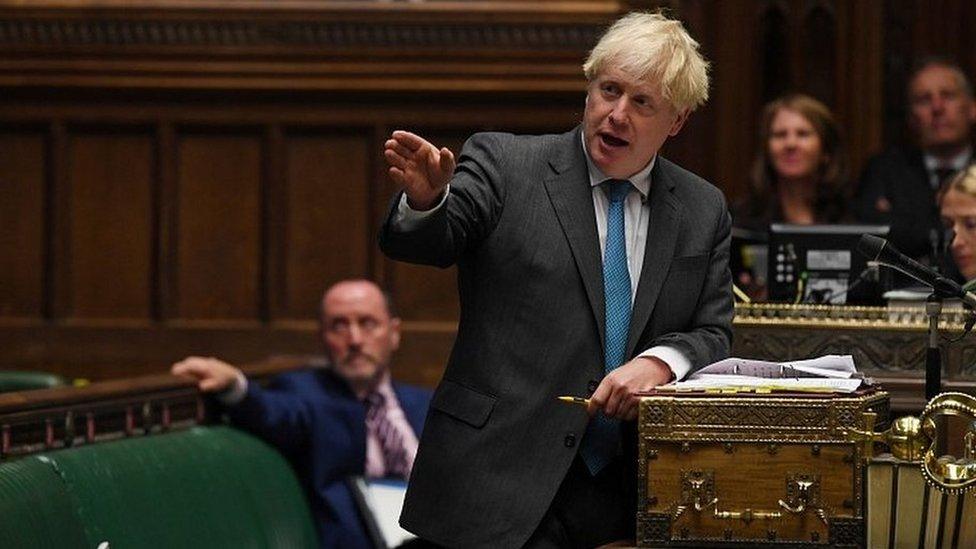Brexit: A compromise maybe but No 10 is not backing down
- Published

The lesser-spotted prime minister has been seen doing the rounds with backbenchers in the House of Commons in the last few days.
During his time in office that hasn't happened that often, even excusing the restrictions on our lives that saw Parliament's normally buzzing corridors fall silent.
But recently Boris Johnson has been talking avidly to some of the occupants of his backbenches to try to avoid a rebellion next week.
After dark mutterings from government sources about the future of those who didn't support the government's controversial plan on Monday, there have instead been a couple of days of talks with those who were extremely uncomfortable with aspects of the UK Internal Market Bill and an accommodation was found.
After thrashing ideas around to try to pacify the objectors, Downing Street confirmed that it had found a compromise to assuage the rebels' concerns.
A joint statement emerged, as it happens shortly after the resignation of one of the government's top lawyers over the plans, in the names of the MPs Bob Neil and Damian Green and Number 10 suggesting all was well.
Talk of the government backing down, having listened and given concessions, was in the air. There is however a huge but.
What Downing Street has agreed is to provide an extra check in the process, giving Parliament the ability to vote to stop ministers using the controversial powers they desire.
In other words, the government still wants to change the deal it has already done with the EU, the agreement that has already been written into law. Whatever you think of that, asking for extra permission from MPs does not mean that ministers have backed down on the overall principle that provoked such outrage.
Aside from anything else this is a government with a huge majority, so giving Parliament a "lock" is not exactly a big restriction.
And this move does not mean that resistance in the House of Lords will disappear. And for that matter, the EU's upset at a tense time will remain.
The move does mean the government is unlikely to have the embarrassment of a rebellion in its own party when the draft laws are back in the Commons next week.
But don't mistake that for Downing Street giving up on its plan which caused such outrage at the start.
